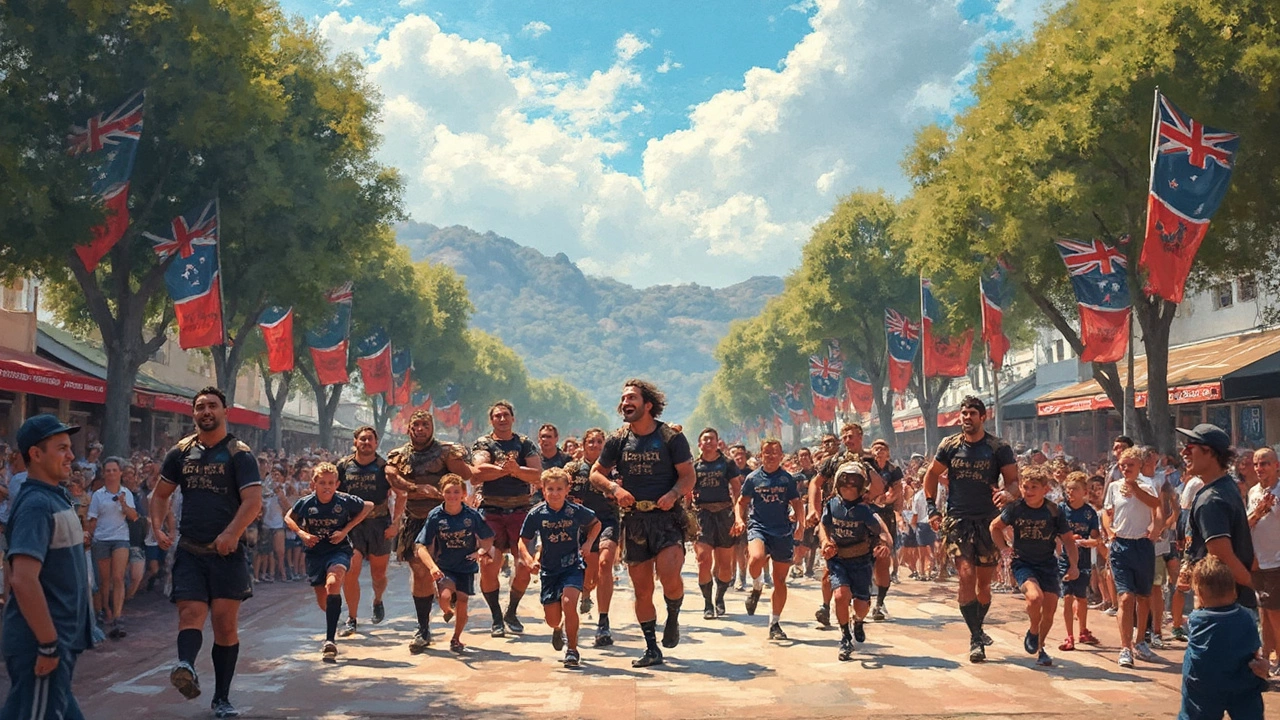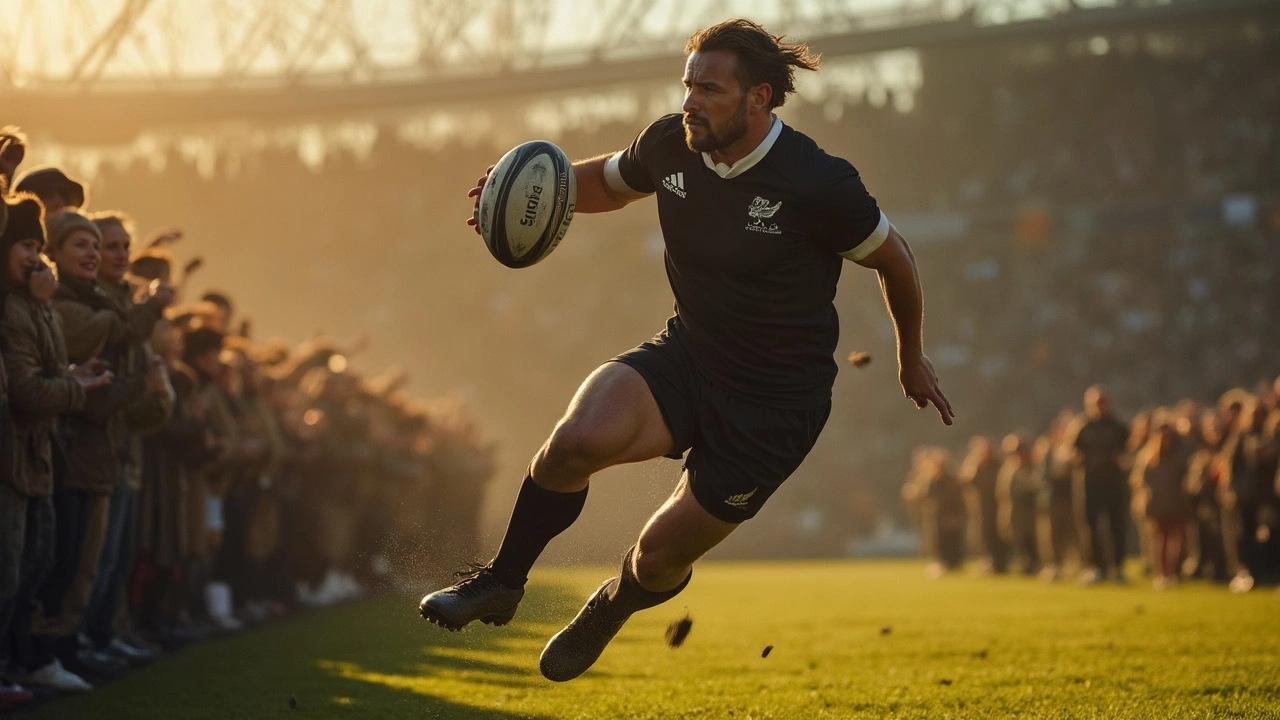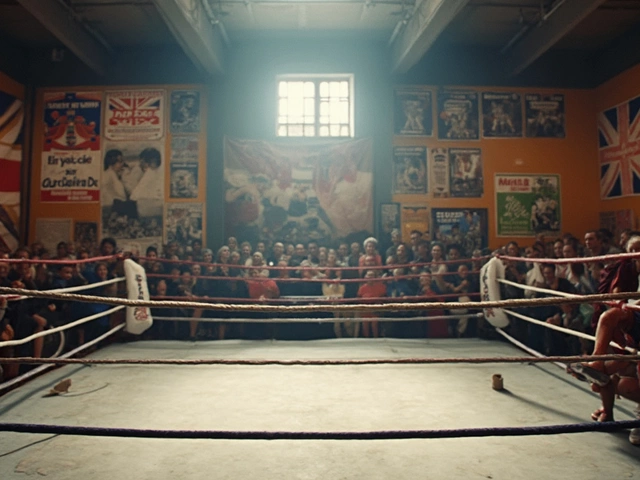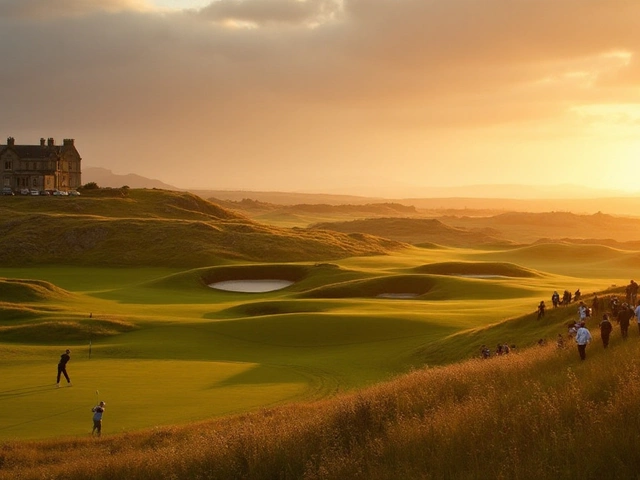
Rugby Fixtures March 26, 2025
Why New Zealand Calls Rugby 'The Game of a Nation'
If you've ever set foot in New Zealand, you might have noticed that rugby isn't just a sport there. It's something akin to a religion—a way of life that echoes in every community from Auckland to Dunedin. Locally, it goes by the reverent nickname 'The Game of a Nation,' and for good reason. The way Kiwis rally around the oval ball is fascinating and a bit enchanting.
But why such a big deal? Well, rugby is woven into the very fabric of New Zealand. Turn on a TV, and you'll likely hit a channel broadcasting a match. Head to a local pub, and the conversation is probably rich with match analysis and player profiles. It's not just pastime—it's identity.
- Rugby's Cultural Significance
- The Origin of 'The Game of a Nation'
- The All Blacks Legacy
- Rugby's Role in New Zealand Society
- Keeping Up with Rugby Fixtures
- Interesting Rugby Traditions
Rugby's Cultural Significance
In New Zealand, rugby goes way beyond being just a sport. It's a key piece of the national identity and holds a special place in the heart of Kiwis. The passion for rugby is something you can feel, almost like the fierce haka the All Blacks perform before their matches. But you might wonder, why is rugby so ingrained in the culture here?
Rugby first found its way to New Zealand in the late 19th century, and it quickly took hold. The country's relatively small population found a unifying force in the game, cutting across class and racial lines. It's one of those rare things that connects everyone, regardless of where they're from. Quite literally, from schools to national pitches, rugby is a constant presence.
Rugby also plays a vital role in promoting social unity and pride. Kiwis love their rugby moments, and nothing unites the nation quite like supporting the All Blacks in international competitions. The symbolic power of rugby here is showcased by how it fosters a sense of togetherness, cutting through barriers that might otherwise divide communities.
The Role of Maori Culture
Rugby has always been a stage where New Zealand showcases its extraordinary cultural diversity. The influence of Maori culture is profound, vividly captured in rituals like the haka. This deep cultural tapestry adds a unique rhythm to the matches and makes the experience richer for everyone involved.
Inspiring the Next Generation
From a young age, children in New Zealand are encouraged to pick up a ball and play. Community programs aim to ensure that budding talents are nurtured. Rugby clubs are often the heart of communities, symbolizing more than victories and losses; they represent growing up, learning sportsmanship, and embodying the pride of a nation's sport.
The socioeconomic impact of rugby is notable too. Many young players aspire to play professionally, seeing it as a viable future and a way to represent their country on a global stage. It's not just about national pride but about achieving dreams.
The Origin of 'The Game of a Nation'
The story of rugby in New Zealand is as thrilling as a last-minute try. It all kicked off in the late 19th century. British settlers brought rugby with them, and it turned out to be a perfect match for the Kiwi spirit. The openness of the game, the strategic depth, and the room for individual flair made rugby a hit.
By the early 1900s, New Zealand already had a recognizable love affair with rugby. It was more than just playing the game—it became a symbol of strength and unity. Schools introduced it as part of their curriculum, and towns organized local club games, turning matches into community affairs.
The Rise of the All Blacks
Enter the All Blacks. This team didn't just play rugby; they dominated it. Their 1905 tour of the UK was legendary. They won 34 out of 35 matches, and the team became synonymous with national pride. The famous haka, a traditional Maori war dance performed before games, only cemented their unique identity.
This blend of skill, tradition, and community spirit transformed rugby into 'The Game of a Nation.' It's more than bending the rules and scoring points—it's about showcasing what New Zealand is all about. It's where Kiwis find a shared heartbeat, whether they're on the field, in the stands, or huddled around a screen in the living room.
This cultural embrace means that rugby fixtures are not just dates on a calendar—they're social events. The excitement is palpable. Even non-fans will catch a match or two because, in New Zealand, missing a big game is like missing a slice of the national cake.
The All Blacks Legacy
No discussion about rugby in New Zealand would be complete without mentioning the legendary All Blacks. Known around the world, the All Blacks are the epitome of rugby excellence, a team that's not just playing to win, but to preserve a nation's pride.
Since their first official test match in 1903, the All Blacks have consistently been among the top teams globally. Sporting the iconic black jersey, the team is renowned for its powerful and precise play. They've won the Rugby World Cup three times (1987, 2011, and 2015) and, almost as important as victories themselves, have done so with a grace and sportsmanship that's admired by fans and foes alike.
The Iconic Haka
What do the All Blacks do that others don't? Start with the haka. This traditional Māori challenge isn't just meant to intimidate the opposition. It's a ceremonial dance, reflecting New Zealand's deep cultural connections. Watching the haka is an experience, a perfect blend of fierce energy and cultural heritage.
Stats That Speak
Consider some eye-popping stats: the All Blacks have won about 77% of their international matches, which is phenomenal in the world of rugby. Their consistency is not just luck; it's the outcome of generations of investment in the sport at the grassroots level.
| Rugby World Cup Wins | Year |
|---|---|
| First Win | 1987 |
| Second Win | 2011 |
| Third Win | 2015 |
Influence Beyond the Field
The influence of the All Blacks stretches beyond the field. They are part of New Zealand's identity, and their values are often mirrored in broader society—teamwork, resilience, and a dash of Kiwi spirit. They bring together a diverse nation, uniting everyone during their matches, regardless of background or beliefs.
The All Blacks are more than just a rugby team; they're a legacy, one that continues to inspire new generations and keeps New Zealand at the heart of the rugby world.

Rugby's Role in New Zealand Society
For New Zealanders, rugby is more than just a game—it's a way of connecting with their roots and showcasing their fiercely competitive spirit. From the early 1900s, the sport has been an integral part of the Kiwi identity, shaping their national pride and unity.
The influence of rugby extends beyond the field. Schools across the country emphasize rugby as part of the physical education curriculum. It's typical to see kids practicing the fundamentals of the game in playgrounds, and this early exposure helps hone future stars. Clubs are abundant, and every town has a team that fuels local rivalries, fostering a sense of community and belonging.
When it comes to the All Blacks, the national team, Kiwis unite like few other occasions can provoke. Their matches are grand events, often accompanied by family gatherings and nationwide viewing parties. This reflects the sport's unifying power, cutting across all demographics. It's the perfect mix of tradition and contemporary culture.
Rugby and the Economy
Rugby also plays a significant role in the economy. With thriving merchandise sales and thriving tourism during major fixtures, like the Rugby World Cup, the sport brings substantial revenue. Local businesses, from caterers to service industries, enjoy a spike in profits during these rugby seasons.
Gender and Rugby
Though traditionally male-dominated, women's rugby is gaining ground in New Zealand. The Black Ferns, the women's national team, have grown significantly in popularity, providing role models for young girls aspiring to take up the sport.
| Year | Registered Players |
|---|---|
| 2020 | 157,000 |
| 2023 | 170,000 |
Overall, rugby is a powerful force that shapes various facets of New Zealand society—from schools and communities to the economy and national unity. It's a staple of Kiwi culture, reflecting the values and competitive nature of its people.
Keeping Up with Rugby Fixtures
Rugby fixtures in New Zealand are a bit like a colorful calendar that everyone wants to keep up to date. Whether you're a massive fan or a newbie hoping to catch some action, knowing what's on is crucial. So, how do Kiwis keep track of what's happening in the rugby world?
First off, there's the trusty calendar on many rugby websites, which includes all the rugby fixtures for the season. This handy tool helps fans plan their weekends around matches. Bookmarking these pages is a common practice.
Mobile Apps and Online Platforms
In our digital age, mobile apps have become the go-to for live updates and alerts. The NZ Rugby app is particularly popular and provides real-time scores, news, and fixture updates. Plus, social media platforms like Twitter and Facebook are always buzzing with commentary and updates.
The Role of TV and Radio
For those who prefer more traditional media, TV and radio are still prevalent. Sky Sport offers extensive coverage of local and international games, ensuring fans never miss a match. Meanwhile, radio stations broadcast live commentaries, capturing the essence of being right there in the stands.
Community Boards and Local Pubs
Let's not forget the local vibe. Community boards often list upcoming games, especially in rugby-heavy areas. And of course, local pubs serve as venues for viewing parties, where the fixtures are as much about socializing as they are about the sport.
Naturally, keeping tabs on the game is part of the excitement. It’s not just about watching players on the field, but also about being part of a larger community that breathes and lives rugby.
Interesting Rugby Traditions
New Zealand's love for rugby comes with its fair share of fascinating traditions that make the game even more special. These traditions aren't just for show—they're a huge part of Kiwi culture, and they bind communities together. Let's dive into some of the most cherished traditions that keep fans engrossed, whether they're on the field or screaming at the TV.
The Haka
Probably the most famous of all, the Haka is a traditional Māori war dance performed by the All Blacks before each match. It's an intense, emotional dance that involves chanting, stomping, and facial gestures. The Haka fires up the team and sets the tone for the game, while also serving as a sign of respect to the opponent. Its origins lie deep in Māori culture, symbolizing strength and unity, and each version tells its own unique story.
Jerseys and Blackout Nights
Another cool tradition involves jerseys. The All Blacks' iconic kit, as the name suggests, is predominately black with the famous silver fern crest. Fans mirror this color scheme during games by wearing black and hosting 'blackout' events where everyone dons their team gear, turning stadiums and homes into a sea of black. It's a sight to behold, fostering a strong sense of community and pride.
Post-Match Gatherings
Rugby games are not just about the action on the field. They're community events. After matches, it's common for locals to gather at pubs or community centers to discuss the game over some beers and food. Here, fans bond, debate key plays, and relive any breathtaking moments from the day's action.
Celebratory Ceremonies
When the rugby season concludes or following a major victory, celebratory ceremonies are held, blending Māori customs with modern celebrations. This unique blend showcases how deeply interwoven rugby is with New Zealand heritage and serves as a chance for players and fans alike to come together and celebrate their identity as one.




